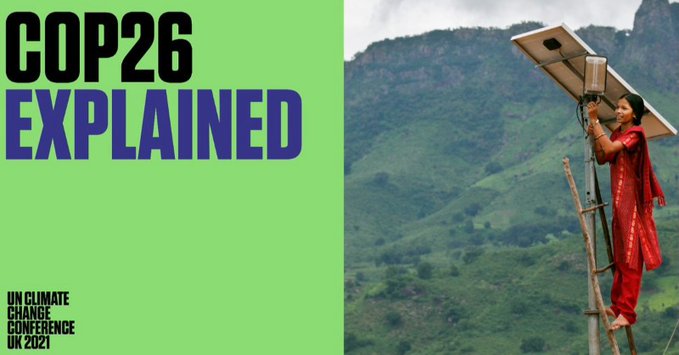|
Getting your Trinity Audio player ready...
|
Less than two months to the Climate Change Conference of the Parties (COP26) in Glasgow, Scotland, Africa has already made its demands known. According to the Tanguy Gahouma-Bekale-led African Group of Negotiators on Climate Change, the team will use the October 31-November 12 conferences to press their counterparts from the developed countries to place the continent at the heart of the negotiations.
This is because Africa is heavily affected by the impact of climate change — such as food insecurity, diseases, population displacement, water scarcity, and climate-related conflicts — despite contributing the least emissions of greenhouse gas (GHG), at less than four percent of the global quantity yet the developed countries produce 79 percent. They want the latter to mobilise and provide adequate climate finance resources and transfer environmentally sound technologies to African countries.
Africa also wants the developed countries to meet their 2009 pledge — to contribute at least$100 billion (Sh10 trillion) annually to help poor countries to cut emissions by 2020. The continent also needs grants, not just loans that exacerbate its debt burden which weakens the capacity to tackle the climate crisis. The team will, hence, root for the increase in international support for Africa’s adaptation and mitigation programmes and initiatives.
But African countries must show their seriousness about climate change by submitting their updated nationally determined contributions (NDCs) before COP26. NDCs embody efforts to reduce national emissions and adapt to climate change effects. Article 4 of the Paris Agreement requires parties to prepare, communicate and maintain successive NDCs that it intends to achieve every five years.
Climate change
In its updated NDC, Kenya has raised its emission reduction target from 30 percent to 32 percent by 2030. The country needs at least Sh6.2 trillion to meet the cost of mitigation and adaptation actions. Having pledged to meet 13 percent of the cost, it requires international support for the remainder.
The first NDCs were submitted in 2015. All the 191 parties to the Paris Agreement were supposed to submit updated commitments by December 2020.
The United Nations Framework Convention on Climate Change (UNFCCC) NDC registry shows only 75 parties submitted their updated NDC by the end of last year. And African countries were doing badly: Only Kenya, Ethiopia, Zambia, Senegal, Angola, and Rwanda were among the 110 who beat the deadline. About 30 African countries — or 57 percent — had complied.
Going for negotiations with almost half of African countries yet to submit their updated their NDCs is likely to paint a picture of a continent that is not committed and lacks seriousness in the matters of climate change. African countries that have not submitted their 2020-2025 commitments should do so in the next two months.
Source: Nation






